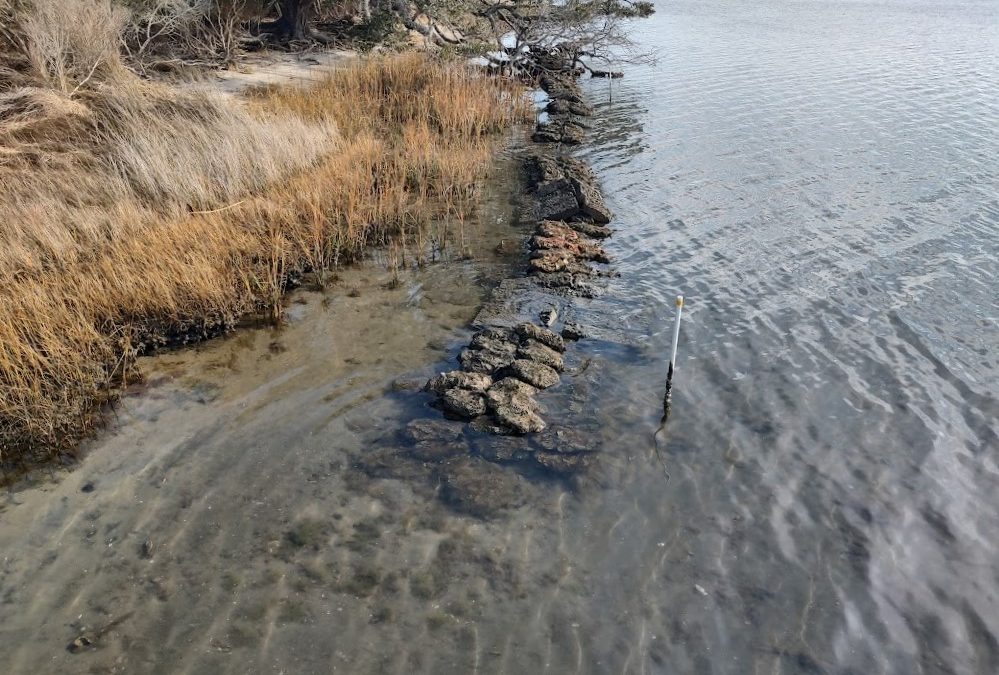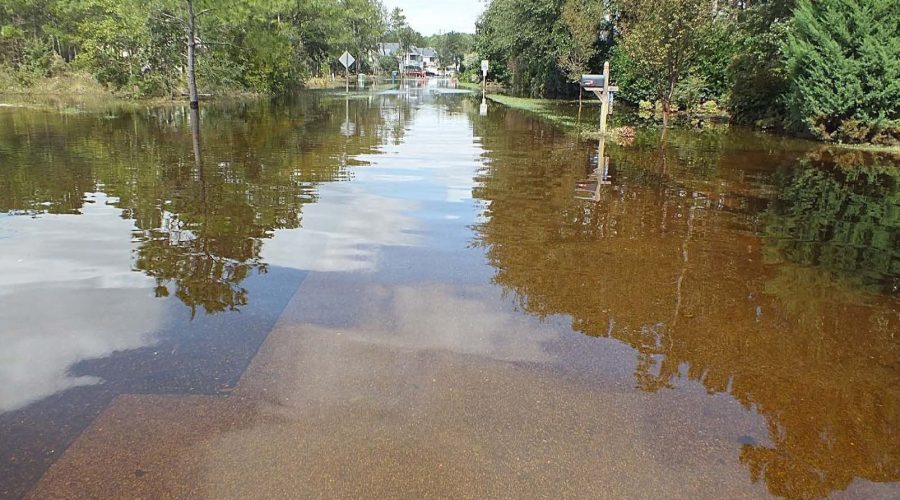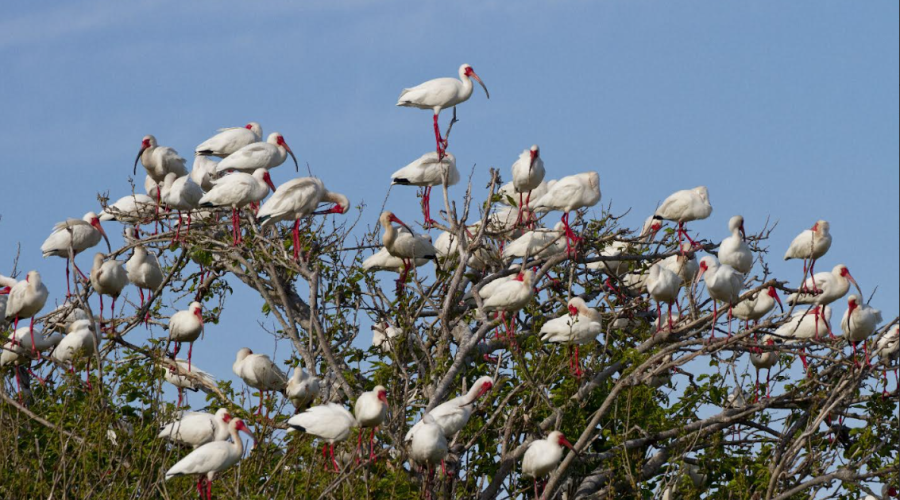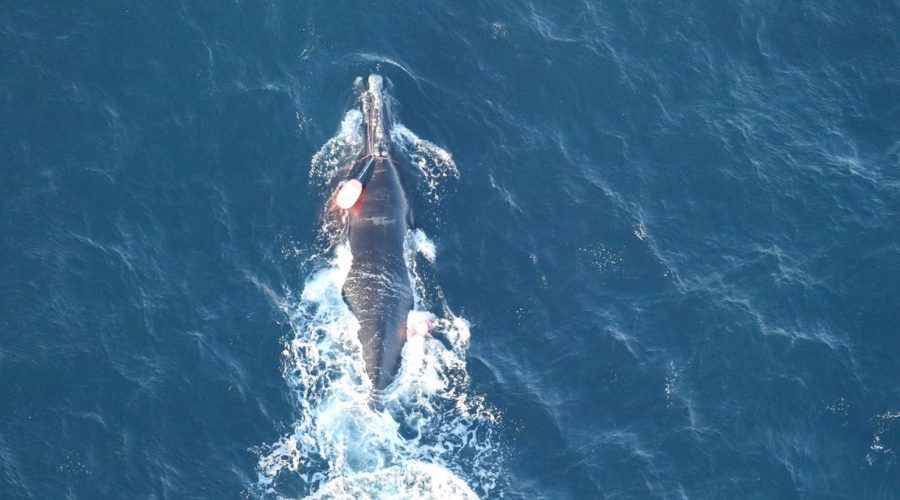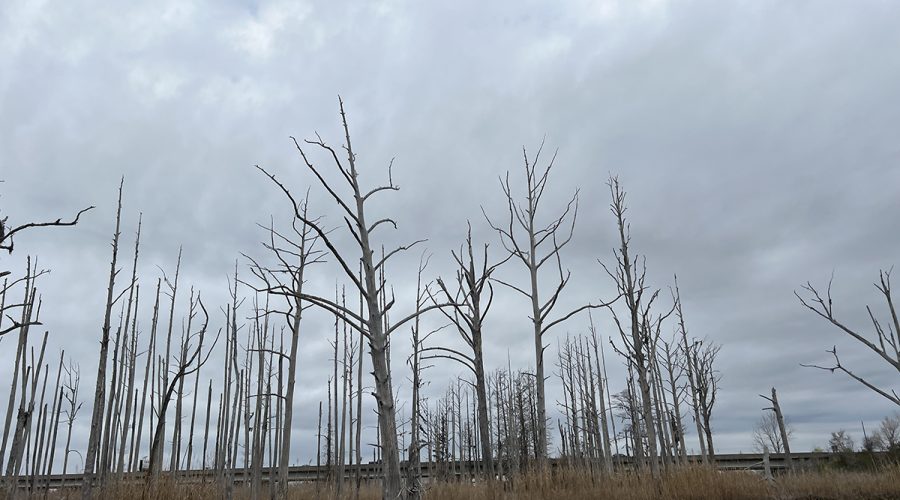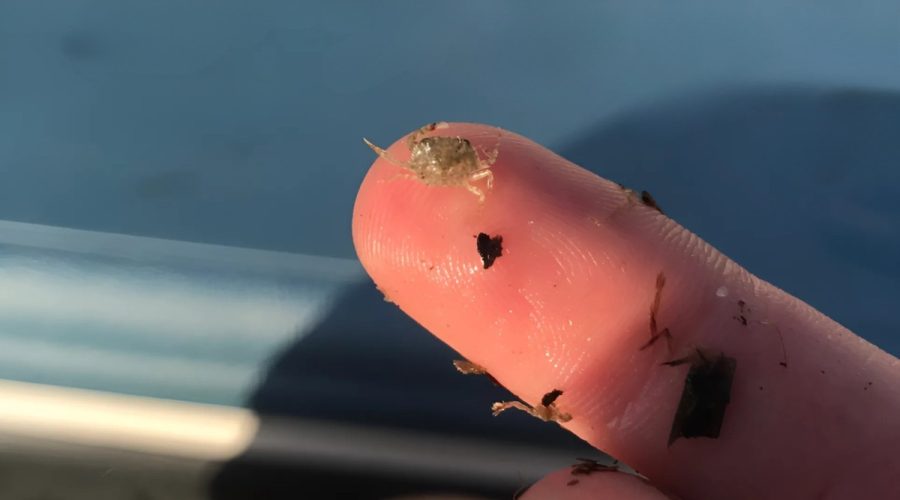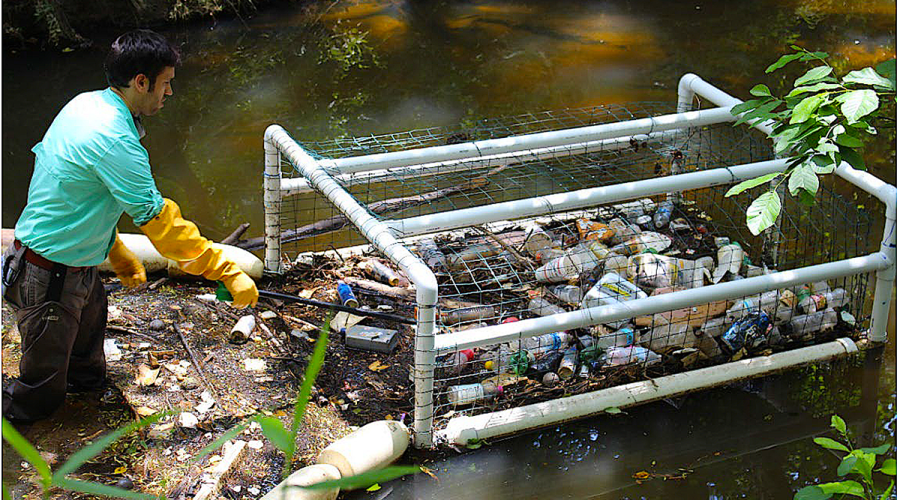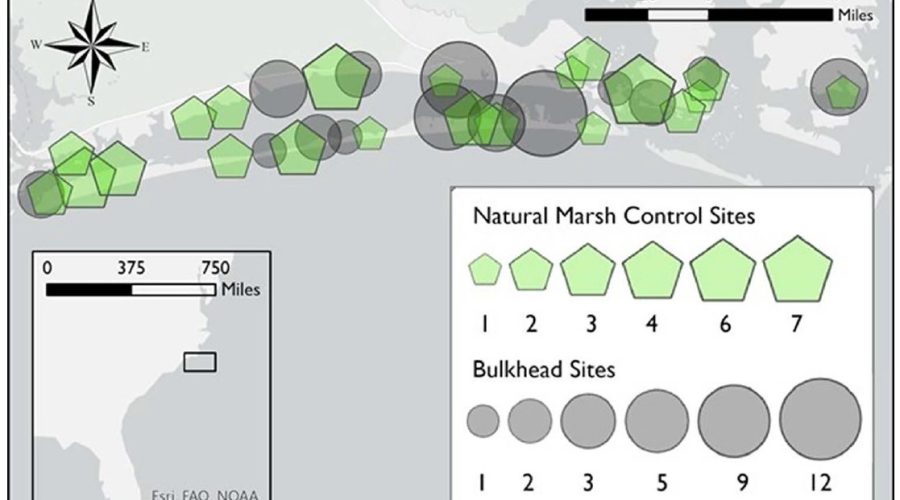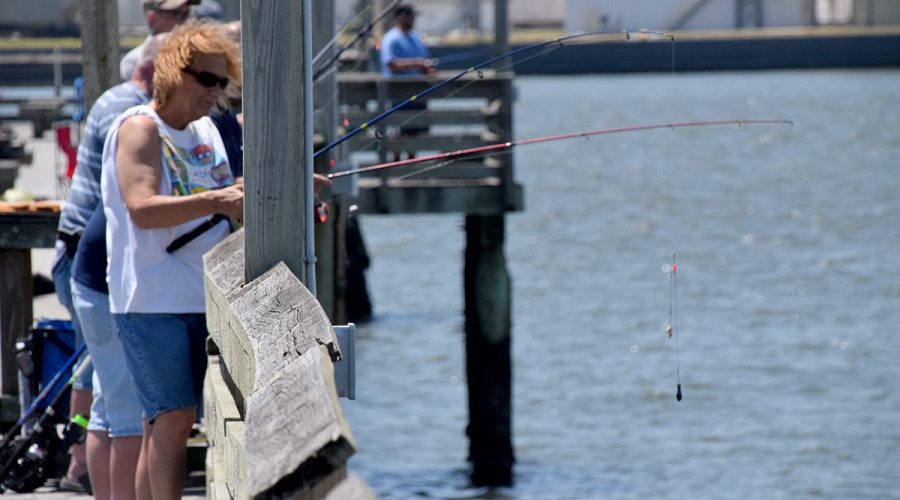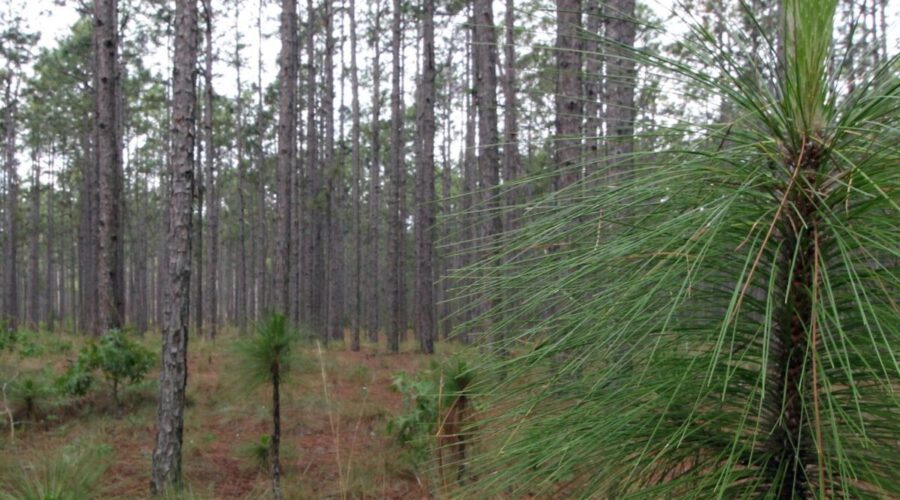While it’s not exactly “build it and they will come,” nature-based shoreline erosion-control structures such as living shorelines offer increased protection when they successfully attract and grow oysters.
Science
NC State team develops simulation tool for offshore energy
North Carolina State University researchers have created a model that simulates wind, waves, tides and currents to help pinpoint areas best suited for various types of offshore energy generation.
NOAA storm prediction modeling in midst of major update
National precipitation forecasting has for decades been hamstrung by static and inadequate climate models, but new tools are in development to provide more accurate rainfall predictions.
NCDEQ’s staffing cut by more than 30% over 14 years: Report
As North Carolina’s population has grown and the factory farming industry expanded, the state’s environmental agency staff has been slashed by almost a third in less than 15 years.
Partnership to test living shorelines on two Cape Fear islands
An effort to protect threatened wading bird colonies and their imperiled habitat on Battery and Shellbed islands, Audubon, Sandbar Oyster Co. and the North Carolina Coastal Federation have teamed up to design and install two pilot projects and test their effectiveness.
Manufacture, use of plastics incur staggering societal costs
Duke University researchers have put into dollar figures the true costs to society of cheap plastic products: from $436 billion to $1.1 trillion annually.
‘Cautiously optimistic’: Right whale population rises 2.1%
The North Atlantic right whale population rose slightly in 2024, but while marine scientists are encouraged, they say strong protective measures are still needed.
Cape Fear ghost forests tell tale of ever-saltier water upriver
New findings in a report from the University of North Carolina Wilmington that examined tree cores and sediment samples from a nearby tributary show how the loss of cypress forests and protections they afford could worsen with further Cape Fear River dredging.
Blue crab populations decline after juvenile stage: Study
The blue crab population in the Albemarle-Pamlico Estuarine System is disappearing sometime between when juveniles leave their nursery habitats and before reaching sexual maturity, a recent study finds.
Vast majority of litter removed from streams is plastic: Study
A three-year study recently published in the journal Community Science finds that about 96% of litter North Carolina waterkeeper organizations and their volunteers removed from trash traps were plastics.
Shark meat could be high in mercury, mislabeled: Study
Meat labeled “shark” for sale in grocery stores and fish markets may be from critically endangered species or have significant mercury in its tissue, according to a UNC Chapel Hill study.
Bulkheads lead to salt marsh erosion, total loss: Study
Researchers found that all 45 bulkhead sites analyzed for a recent study experienced marsh shoreline erosion during the 32-year study period, with complete marsh loss at 11% of the sites.
Global photosynthesis rates trend differently on land, at sea
A recently published study finds that plants on land are increasingly absorbing more carbon, while Earth’s oceans are taking in and storing less.
Coastal North Carolina’s fossil record reveals giant ‘hell pigs’
A recent study published by Cambridge University Press finds that the “exceedingly rare” land mammal fossils from 20 million years ago that were found near Maysville fill “an important gap in our knowledge of this time interval and paleogeographic region.”
Report: State needs more fisheries scientists to meet goals
The mandated study of North Carolina’s fisheries management practices finds that the state, despite increasingly intense management measures, is failing to protect and enhance coastal fisheries, and it includes no recommendation on trawling.
The Longleaf Alliance seeks areas to harvest pine cone crops
Because of the anticipated seed shortage that comes with a low estimate of pine cone crops for the third consecutive year, the nonprofit Longleaf Alliance is scouting for potential low-density stands of mature longleaf pines to harvest seeds in the fall.

